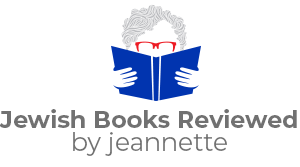By Ron Leshem
 Beaufort – named “beautiful fortress” by 12th century French Crusaders – was a symbol of Israeli defensive strength when it was captured from the PLO in 1982.
Beaufort – named “beautiful fortress” by 12th century French Crusaders – was a symbol of Israeli defensive strength when it was captured from the PLO in 1982.
With a commanding view of the upper Galilee and South Lebanon, it was touted as the safe zone that protected Northern Israel.
By the late 1990s, it was a symbol of the failure of the Israeli campaign into Lebanon. Rising death tolls made it the focus of escalating anti-war campaigns and a national debate on troop withdrawal.
This novel follows 13 Israeli Defense Force (IDF) soldiers through two tours of duty at Beaufort. Exuberant, cocky, lusty and inexperienced, they ascend to the Beaufort, each ready to be Rambo. Their leader, Erez Liberti, is short, testy, impulsive and aggressive. His squad describes him as a Rottweiler. He’s been punished for leading an attack on enemy snipers against orders. His commander at Beaufort is waiting for him to make another misstep.
The squad faces hellish conditions: the constant threat of Hezbollah attacks; on-again, off-again supply runs from Israel; having to live constantly within the protection of the fort; showers once every two to three weeks; inadequate toilets, and overcrowded, always-lit dormitories.
Tedious rounds of guard duty, kitchen duty and clean-up work lead one squad member, Bayliss, to say, “This was supposed to be a war, they promised us war, and suddenly it turns out there isn’t one . . . All we have is hard labor here. Donkey work. Where’s the real thing?”
As individuals – River the medic, Zitlawi the charming small-time punk, Oshri the calm, sergeant, Spitzer the gentle musician, Emilio the runner – and as a squad, they discover “the real thing.”
They experience the death of Ziv Farran, a charismatic bomb specialist who arrived at Beaufort five days before his discharge. His mission is to disarm a suspected mine on a road. He walks across a land mine and dies. His grieving grandmother in Israel stops eating and drinking. She dies 10 days later.
Leshem’s disarming characters touch a reader’s heart easily. The fear, the grief and, above all, the question, “Is it worth it?” intensify with every page.
BEAUFORT won the Sapir Prize, Israel’s top literary ward in 2006.
Leshem does not draw a simplistic or one-sided picture. Beaufort isn’t an anti-war polemic. Erez himself is never touched by bullets, missiles or mines. He is among the wounded none the less. His bonds to his men, his unexpressed grief and his difficulties in coming to terms with the changing conditions leave him damaged. He sees the ghosts of lost friends in the happiest moments of his life. Still, he’s under no illusion that the war that led to Israel’s occupation and abandonment of Beaufort is over.
Two characters, River and Bayliss, say these words inside the tank taking them away from Beaufort for the last time, “May it be your will, our God and God of our forefathers, that You head us toward peace, guide our feet toward peace, lead us to peace . . . and make us reach our desired destination for life, gladness, and peace. May You rescue us.”
Amen.
Other books about the challenges of contemporary life in Israel that might be interesting to readers include WAKING LIONS and HILL OF SECRETS.
About the Author: Ron Leshem (1976 – )
Ron Leshem is an Israeli-American television and film writer and producer, best known for the television series “Euphoria” (2012) and for the film “Beaufort” (2007), which was nominated for a Best Foreign Language Film Academy Award.
Born in Tel Aviv, Leshem served in the Intelligence Corps of the Israel Defense Forces. He spent three years as a reporter in the Palestinian West Bank and Gaza. He was promoted to head of the news division at Israel’s newspaper Yediot Ahronot, where he also wrote analyses of military affairs.
At 26, he became deputy chief editor for Ma’ariv, one of Israel’s top three newspapers. At the same time, he was writing short stories for Le Monde, a French newspaper as well as columns for various other European newspapers.
From 2006 to 2009, he was head of programming and content for Keshet Broadcasting and developed and produced some of the most popular Israeli TV series, including “Homeland.” He continues to write award-winning television dramas in Israel. Since 2020, he has worked as a creator, writer and producer on the television series “No Man’s Land” and “Valley of Tears.
In 2019, the Israeli film “Incitement” which he co-wrote, premiered at the 2019 Toronto Film Festival. It received 10 nominations for Israeli Academy of Film and Television awards.
His second novel, THE UNDERGROUND BAZAAR (2009), is a best-seller set in Teheran.
He divides his time between Boston and Los Angeles.


